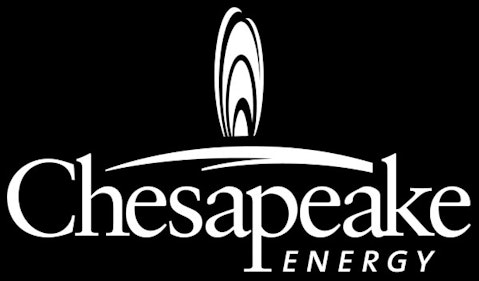There’s a little more accountability in the business world now that executive pay cuts are becoming more fashionable, but we’re still in the “cosmetic” phase that hints at real change but ultimately falls short. Corporate boards of directors are still experiencing difficulties summoning the courage to make chief executive officers fully accountable for their job performance and behavior at the helm.
Strong boards — and strong corporate governance policies — are still the exception to the rule. It’s something to remember ahead of proxy season as we investors contemplate our votes. More shareholder voting and activism will hopefully encourage more real accountability — and truly meaningful consequences — when corporate managements fail at doing their jobs responsibly and for the good of their companies, not just themselves.

Last week’s big news about Chesapeake Energy Corporation (NYSE:CHK) CEO Aubrey McClendon’s “retirement” is a perfect case in point. Somebody should have remembered to put real claws in the clawback provisions out there in wildcatting territory.
I put “retirement” in quotes because Chesapeake shareholders face an infuriating outcome after all the indignities they have already suffered. The company has been steeped in controversy due to McClendon’s behavior at the helm, and while his departure is a good sign for better governance, it doesn’t appear he’s truly going to be held responsible for anything as he steps down.
The company’s most recent proxy statement outlined the stipulation that should McClendon “retire” before December 2013, he would be entitled to $0 severance and even face a potential $30 million clawback.
Of course, that did sound too good to be true.
Even though the company’s press release clearly says McClendon “agreed to retire,” the board will treat McClendon’s departure as “termination without cause” and — surprise — that’s a horse of another color. The color green, actually.
According to the same proxy statement, termination without cause entitles McClendon to about $47 million. Clawbacks? None.
Although McClendon recently voluntarily gave up his bonus, we now know that bowing to the pressure to leave his job ensures a handsome payday anyway. This is despite the fact that myriad corporate governance problems at the company over the years — including excessive pay for McClendon — are just the tip of the iceberg. Although the board has found “no wrongdoing” on McClendon’s part at the helm, the company is still being investigated by the SEC.
Although many people are pointing to McClendon’s decision as a Carl Icahn victory given his stake in the company and subsequent board shake-up, McClendon’s cushy “retirement” package isn’t a massive victory for shareholders.
AIG: Always Infinitely Galling
Obviously, we shareholders continue to be aware that if we don’t look out for our own interests, nobody else will, either.
Case in point: Last week, news broke that the U.S. Treasury allowed big pay raises at bailed-out financial companies like American International Group, Inc. (NYSE:AIG), despite its own supposed restrictive pay guidelines for companies that had received government funds. The report from the special inspector general of the Troubled Assets Relief Program alleges that the Treasury fell down on oversight and supervision and deferred to the companies’ pay schemes. Allegedly, these companies weren’t even required to link compensation to performance.
The AIG example is particularly galling, since that company was criticized following the financial crisis for considering giant bonuses appropriate under the circumstances. More recently, the company’s management and former CEO Hank Greenberg had the mind-blowing audacity to consider suing the government over the bailout, even though without it, AIG would have purportedly failed. Apparently there are no stand-up good guys in this scenario, either.
More major issues for shareholders
Situations like these are why shareholder-friendly policies are important, and the issue goes deeper than the compensation issues most of the public seems to focus on.
Shareholders should also vote in favor of strong corporate governance policies such as majority voting, which allows a simple majority vote to elect directors, and proxy access, which allows shareholders to nominate their own directors to boards.
Coming up in February, Apple Inc. (NASDAQ:AAPL) shareholders will be able to exercise their privileges to vote on a proposal to change the company’s articles of incorporation to allow for majority voting after CalPERS’ successful majority voting campaign last year. James McRitchie has also submitted a shareholder proposal requiring Apple management to hold significant shareholdings until retirement age, and John Harrington is pushing for a human rights proposal to address controversies like Foxconn labor problems.
Another controversial but much-needed corporate governance policy is proxy access. Basically, such a provision allows shareholders with a minimum percentage of shares and a specific long-term holding period to nominate directors. However, some headway is being made. For example, The Walt Disney Company (NYSE:DIS)‘s recent efforts to block a proxy access proposal didn’t pass muster with the SEC, so that proposal will go to a shareholder vote this year. (A proxy access mandate has been a battleground at the SEC for years, with corporations pushing back hard, and has since fallen by the wayside.)
Putting accountability back into the boardroom
While it’s nice to hear that some corporate managers are at least taking some hits to paychecks (see high-profile executive like JPMorgan Chase & Co. (NYSE:JPM)‘s Jamie Dimon, who’s taking some accountability for the London Whale trading debacle), it won’t really be enough until financial punishments really hurt, such as is the case with clawbacks.
The Chesapeake situation is just one more example of why business as usual isn’t good business. Stronger corporate governance policies will ensure that managements and boards are truly held accountable, and investors shouldn’t rest until their companies have adopted policies with real teeth. Policies like “clawbacks” — and some real firings, not arguments in semantics — would help build better companies for the long haul.
Check back atFool.comfor more of Alyce Lomax’s columns on environmental, social, and governance issues.
The article Putting Real Teeth and Claws Into Corporate Governance originally appeared on Fool.com and is written by Alyce Lomax.
Alyce Lomax has no position in any stocks mentioned. The Motley Fool recommends American International (NYSE:AIG) Group, Apple, and Walt Disney (NYSE:DIS). The Motley Fool owns shares of American International Group, Apple, JPMorgan Chase & Co., and Walt Disney and has the following options: Long Jan 2014 $25 Calls on American International Group, Long Jan 2014 $20 Calls on Chesapeake Energy, Long Jan 2014 $30 Calls on Chesapeake Energy, and Short Jan 2014 $15 Puts on Chesapeake Energy.
Copyright © 1995 – 2013 The Motley Fool, LLC. All rights reserved. The Motley Fool has a disclosure policy.





